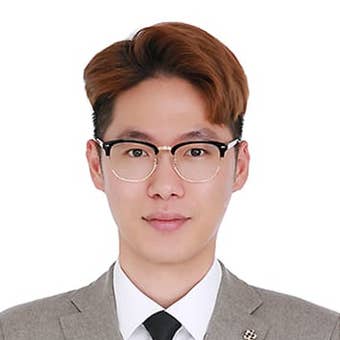Hoffman: North Korea is 'trying to extort' US for economic assistance despite missile tests
Fox News contributor Dan Hoffman joined 'America's Newsroom' to discuss the Biden administration's strategy in dealing with North Korea, and other national security threats to the United States.
SEOUL, South Korea – President Biden’s visit to South Korea on Friday comes amid growing tensions on the Korean Peninsula following a flurry of missile tests, including North Korea’s firing of intercontinental ballistic missiles (ICBMs).
Biden is scheduled to meet the newly elected conservative president of South Korea, Yoon Suk Yeol where the two are expected to discuss North Korea and Kim Jong Un’s recent moves as well as the growing China threat, and other regional security and economic issues.
Unlike his predecessor, Yoon has promised to take an aggressive defense posture against North Korea’s missile threats by strengthening the U.S.-South Korea military alliance. Possible tension points and challenges with the Biden administration and regional allies include South Korea’s growing interest in having its own nuclear deterrent as well as joining the Quad, a regional security group made up of the U.S, Japan, Australia, and India.
A White House spokesperson recently described the Biden visit as showing the administration’s "rock-solid commitment to a free and open Indo-Pacific and to U.S. treaty alliances with the Republic of Korea and Japan." Biden will also visit Japan.
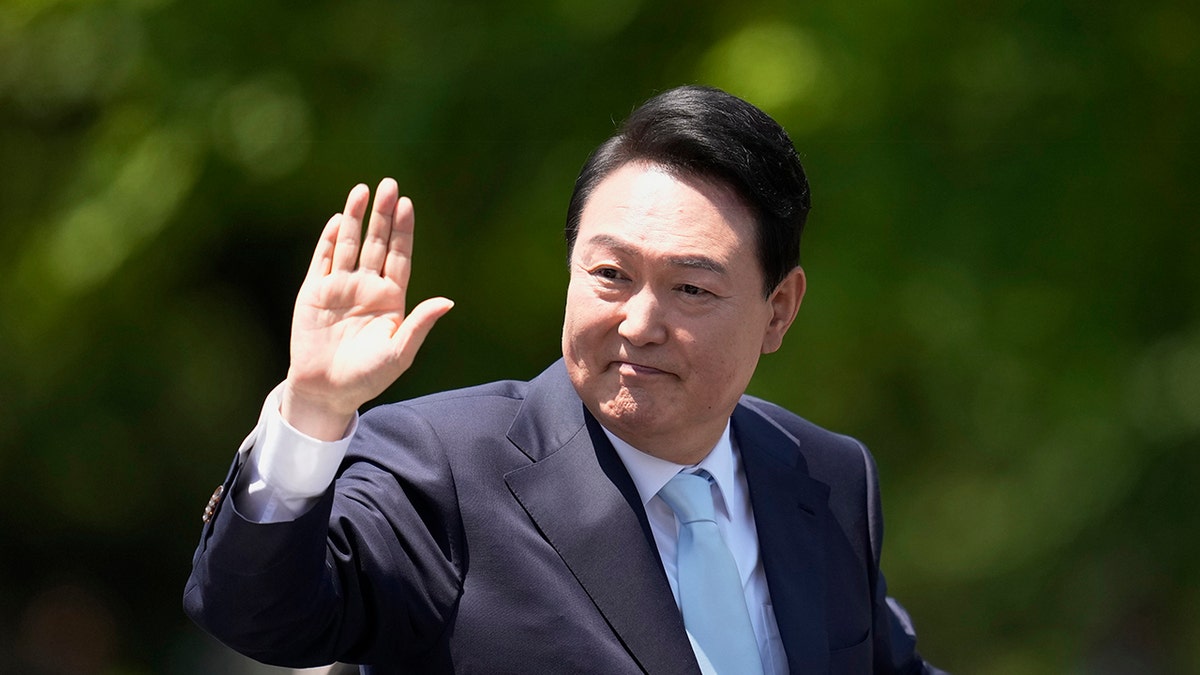
South Korea's new President Yoon Suk Yeol waves from a car after the Presidential Inauguration outside the National Assembly in Seoul, South Korea, Tuesday, May 10, 2022. (AP Photo/Lee Jin-man) (AP Photo/Lee Jin-man)
South Korea’s new president has pledged to strengthen ties with the U.S. and emphasized advancing the U.S.-South Korea military alliance to deal with North Korea issues.
NORTH KOREA MAY STAGE IBM TEST LAUNCH AS BIDEN PREPARES FOR ASIA TRIP, SOURCES SAY
President Biden could face more explicit provocations coming from North Korea such as its ICBM tests in the coming months, as the rogue nation already has conducted its sixteenth missile test this year. U.S. officials said that the North may test its ICBMs this week to coincide with the president’s visit.
In April, during the North’s 90th anniversary of the founding of the Korean People’s Revolutionary Army, Kim Jong Un, quoted by his state’s media, said that "the fundamental mission of our nuclear forces is to deter a war," but warned in that same speech that, "If any forces try to violate the fundamental interests of our state, our nuclear forces will have to decisively accomplish its unexpected second mission."
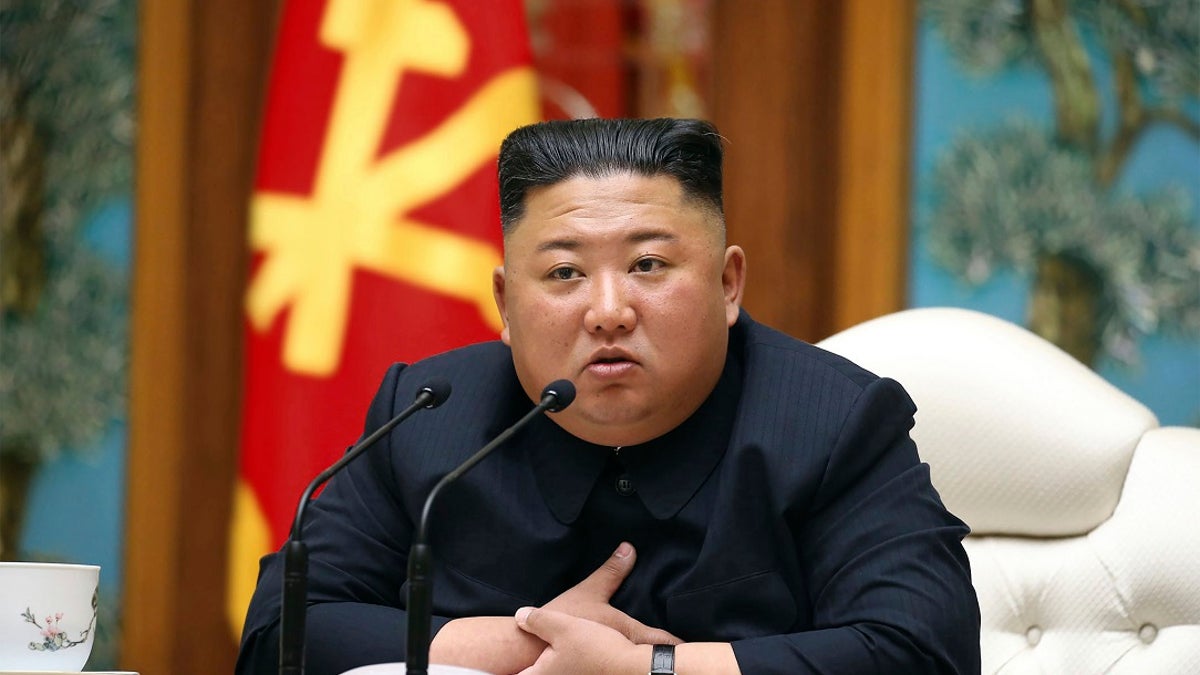
North Korean leader Kim Jong Un attends a politburo meeting of the ruling Workers' Party of Korea in Pyongyang. Kim made his first public appearance Saturday after 20 day. (Korean Central News Agency/Korea News Service via AP, File)
In the light of his previous remarks restricting the use of his nuclear weapons for "self-defense," Kim has obscured the standards of launching his nuclear weapons. While the North was accused of disguising its ICBM test in March as a space rocket launch, Pyongyang also has threatened Seoul by emphasizing itself as a nuclear-owned state.
TRUMP CUTS SHORT KOREA SUMMIT AFTER DISPUTE OVER SANCTIONS: ‘SOMETIMES YOU HAVE TO WALK’
Since the refusal by the Trump administration to accept Kim Jong Un’s offer to dismantle the Yongbyon nuclear complex in exchange for lifting economic sanctions in the Hanoi summit meetings, Pyongyang has restarted testing its ICBMs and other ballistic missiles even though Washington and Seoul have consistently urged Pyongyang to come back to the negotiating table with no preconditions. In order to renew dialogue, North Korea has demanded Washington and Seoul remove the "hostile policies" first as they say President Trump was the one who walked out of the summit meetings with "no deal."
The so-called "hostile policy" refers to the economic sanctions, the U.S.-South Korea joint military drills and about 28,500 U.S. troops in South Korea. North Korea has been demanding the U.S. and South Korea make concessions first in a bid to restore the stalled nuclear talks.
"The Kim siblings are taking a page out of Putin’s playbook in trying to routinize threats of nuclear attack as a new norm," said Sung-yoon Lee, a professor at the Fletcher School at Tufts University. Lee said the regime’s threats may come to be normalized through "repeated threats of nuclear annihilation supported by tests of intercontinental ballistic missiles and nuclear devices."
"The Kim regime will continue to conduct ICBM and nuclear tests while justifying them as a defensive response to ‘hostile policy’ and ‘violation of the fundamental interests’ of his state," Lee said.
Another potential headache for the Biden administration is the possibility of South Korea having its own nuclear deterrent, as polls show that three-quarters of South Koreans support such a move to deter North Korea’s threats.
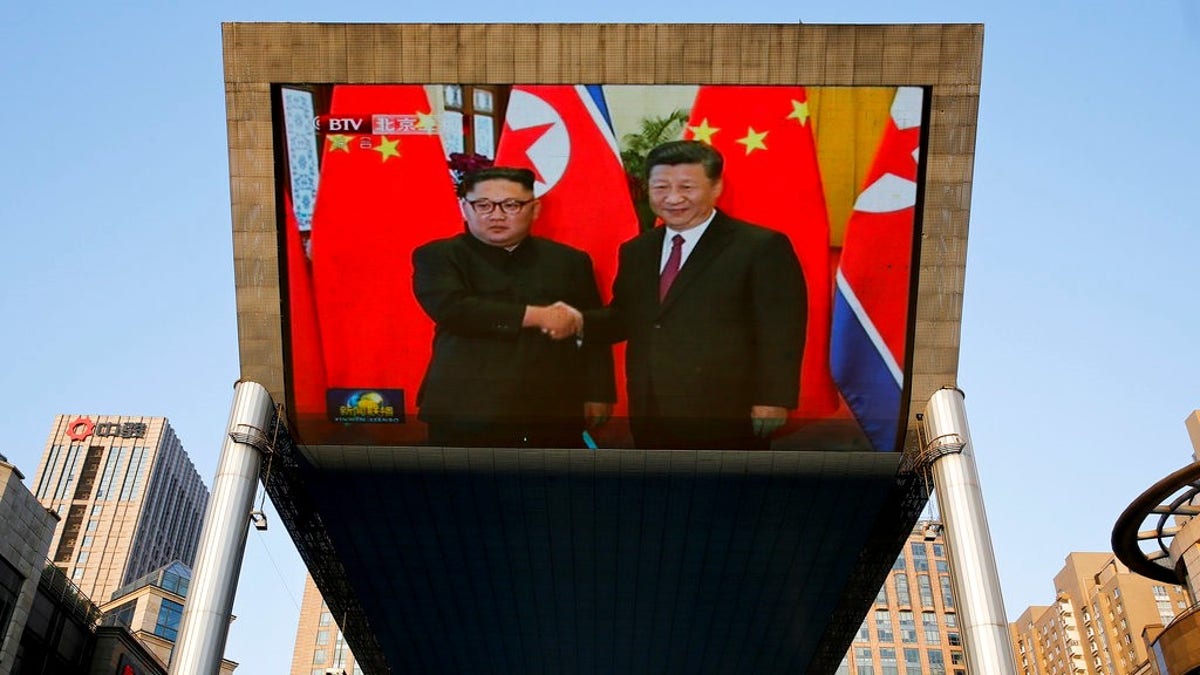
People bicycle past a giant TV screen broadcasting the meeting of North Korean leader Kim Jong Un and Chinese President Xi Jinping during a welcome ceremony at the Great Hall of the People in Beijing. (AP)
The U.S. removed tactical nuclear weapons from South Korea in 1991 but conservatives in Seoul have steadily raised the necessity of redeploying the tactical nuclear weapons in the country to protect it from North Korea’s missile threats. As South Korea is a member of the Non-Proliferation Treaty, this agenda has never been seriously discussed between the U.S. and South Korea. However, the demands of South Koreans over developing their own nuclear weapons could be a serious challenge facing the Biden administration, if its nuclear umbrella seems to be not working to deter North Korea’s missile threats.
SOUTH KOREA ELECTS YOON SUK YEOL, CONSERVATIVE EX-PROSECUTOR, ITS NEXT PRESIDENT
While the new South Korean administration seems to be taking explicitly stronger measures against Kim’s threats, it also wants to join the regional security grouping known as the Quad, something the Biden administration has indirectly expressed a skeptical view on. At a recent press briefing, former White House spokesperson Jen Psaki told reporters that the "the Quad will remain the Quad."
President Yoon recently wrote in Foreign Affairs magazine that, "Seoul should willingly participate in Quadrilateral Security Dialogue working groups." Although there are long-time historical conflicts with Japan, Yoon also expressed his willingness to cooperate with Japan for trilateral security coordination in the region.
Based on Psaki’s remarks on the Quad, observers said that Biden may consider creating a "Quad Plus" instead and invite South Korea, New Zealand and Vietnam rather than formally inviting South Korea to join the Quad.
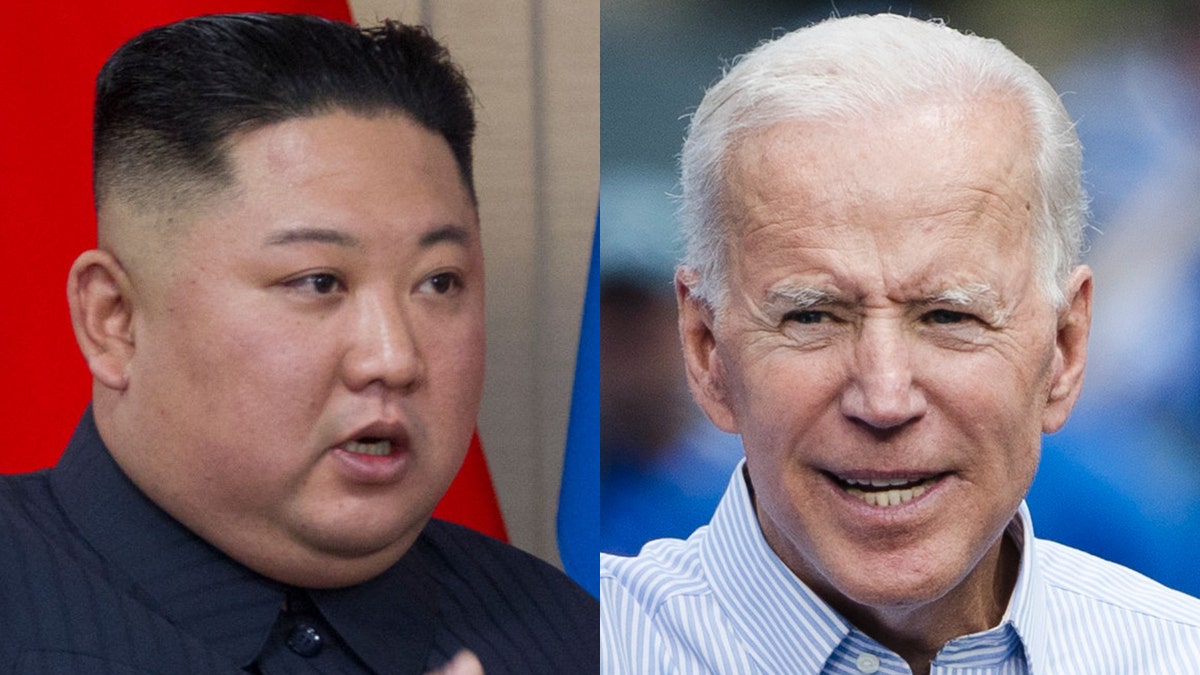
One of the main topics for discussion during Biden's trip to South Korea will be on the regime of Kim Jong Un. (File)
"Japan may try to leverage its support for South Korea's Quad involvement to get Seoul to move on areas of dispute involving Japan's wartime and colonial role on the Peninsula, but Tokyo will be careful not to press its demands too far early in Yoon's term, especially as the U.S. is very keen on U.S.-South Korea-Japan trilateral cooperation," said Mason Richey, a professor of international and area studies at Hankuk University of Foreign Studies in Seoul.
CLICK HERE TO DOWNLOAD THE FOX NEWS APP
If the Yoon administration formally joins either the Quad or the Quad Plus, China may take measures to confront the rising leverage of the U.S.-led coalition in the region. Due to Beijing’s economic retaliation against Seoul’s decision to deploy more Terminal High Altitude Area Defense (THAAD) batteries from the U.S. in 2016, 60 percent of South Koreans view China as an economic threat, not a partner.
If Seoul pushes ahead with its plan to strengthen ties with the U.S. by joining the Quad, deploying more THAAD batteries and reinvigorating the U.S.-South Korea joint military drills, the Biden administration would face the developing Sino-North Korea coalition in the region – which would not be an ideal scenario for Washington to make momentum to bring Pyongyang back to the negotiating table for the denuclearization of the Korean Peninsula.
Mitch Shin is a reporter based in Seoul, South Korea. He can be followed on Twitter @MitchShin5
